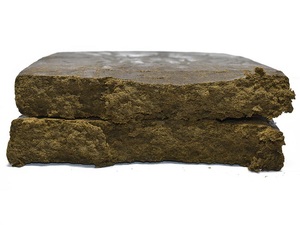Blog Information
- Posted By : Mark Boucher
- Posted On : Jun 28, 2023
- Views : 184
- Category : General
- Description : Cannabis hash, with its concentrated cannabinoids, offers potential health benefits and therapeutic applications for various conditions. From pain management and stress relief to aiding sleep and appetite stimulation, hashish has shown promise in contributing to overall well-being.
- Location : Vancouver, BC, Canada
Overview
Cannabis hash, also known as hashish, is a concentrated form of cannabis that has been used for centuries for various purposes, including medicinal applications. With the growing interest in the therapeutic potential of cannabis, it's important to explore the health benefits that cannabis hash may offer. In this article, we will delve into the potential therapeutic uses and applications of cannabis hash, shedding light on its possible contributions to health and well-being.
- Pain Management
One of the most well-known health benefits of cannabis hash is its potential in managing chronic pain. The cannabinoids present in hashish, such as THC and CBD, interact with the body's endocannabinoid system, which plays a role in pain perception. By binding to cannabinoid receptors, hashish may help reduce pain sensations and provide relief for individuals suffering from conditions such as arthritis, neuropathy, or fibromyalgia.
- Stress and Anxiety Relief
Cannabis hash has been reported to have calming and relaxing effects, making it a potential aid in managing stress and anxiety. The cannabinoids in hashish interact with receptors in the brain associated with mood regulation, potentially reducing feelings of anxiety and promoting a sense of calm. However, individual responses to cannabis can vary, and finding the right dosage and strain is crucial to achieve the desired effects.
- Sleep Disorders
Insomnia and other sleep disorders can significantly impact a person's quality of life. Some individuals find that cannabis hash helps them achieve better sleep. Certain strains of hashish are known for their sedative properties, which may promote relaxation and help individuals fall asleep more easily. However, it's important to note that the effects of cannabis on sleep can vary, and consulting a healthcare professional is recommended for personalized guidance.
- Appetite Stimulation
Cannabis, including hashish, is often associated with increased appetite or "the munchies." This effect can be beneficial for individuals with conditions that cause appetite loss or weight loss, such as cancer or HIV/AIDS. The cannabinoids in hashish may stimulate the appetite and help individuals regain their desire to eat, potentially improving their overall nutritional status and well-being.
- Nausea and Vomiting Relief
Hashish has been reported to have antiemetic properties, meaning it may help reduce nausea and vomiting. This can be particularly beneficial for individuals undergoing chemotherapy or experiencing severe nausea associated with other medical conditions. Cannabis hash's potential antiemetic effects can provide relief and improve the quality of life for those dealing with debilitating symptoms.
- Neurological Disorders
There is growing interest in the use of cannabis, including hashish, for various neurological conditions. Preliminary research suggests that cannabinoids may have neuroprotective properties and could potentially help manage symptoms associated with conditions like multiple sclerosis (MS), Parkinson's disease, and epilepsy. However, more research is needed to fully understand the effects of hashish on these specific disorders.
Conclusion
Cannabis hash, with its concentrated cannabinoids, offers potential health benefits and therapeutic applications for various conditions. From pain management and stress relief to aiding sleep and appetite stimulation, hashish has shown promise in contributing to overall well-being. It's important to note that individual responses to cannabis can vary, and responsible use, proper dosage, and strain selection are crucial.
